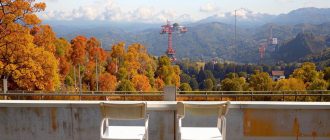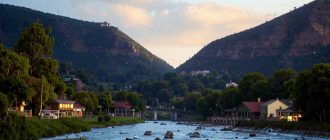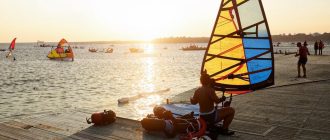Dan Buettner did not introduce the term “blue zones”. The first to do so were scientists Michael Pullen and Gianni Pez, who studied Sardinia’s long-lived people back in the ’90s. But Buettner popularized it. He compiled a list of five regions, in each of which he personally interacted with people in the 100+ age group.
In 2008, Dan Buettner’s first book was published. In 2019, he visited Moscow with a lecture. The performance began with a small test. By answering the questions, you can estimate whether your chances for a long and happy life are great. The more often you can say yes, the higher they are. That’s Dan’s opinion.
Dan Buettner’s test
- Every night you sleep a minimum of eight hours.
- Every day you move for at least 45 minutes. This includes walking, running, yoga. Anything at all.
- Three times a day you eat a serving of vegetables. French fries don’t count.
- You have not had unprotected sex with a stranger.
- You have three close friends. Each of them will come to your aid if you need it. You genuinely like each of them.
- You belong to a faith. Any: Christian, Muslim, etc. If the answer is yes, you attend temple at least four times a month.
- You have not smoked in the last five years.
- You want to live to at least 90 years of age. You believe your health will allow it.
Dan Buettner believes that everyone can create their own “blue zone”. Live a long time without getting sick. The 100-year mark is a challenge with an asterisk. The difficulty is that, according to research, 20% of success – genes. You can’t influence them. But the good news is that 80% of success depends on environment and lifestyle. Where and why do people live longer?

How to live to be 100 years old
Zone #1. The island of Sardinia (Italy)
Dan Buettner: There are 1.5 million people living here. We studied several villages where there were a lot of long-lived men. More than in other places in Europe. Many lived longer than 100 years.
The researchers tried to find common principles that all these men followed. It turned out that they had a similar diet – eating a lot of barley. Another point is having many children. All the long-lived men had many daughters.
The third important point is the same profession. They were all herders. Dan believes that such work accompanies longevity. A man is in the fresh air. He does not strain himself too much. Since you can’t take a lot of food with you, you don’t overeat.
In general, the diet of the inhabitants of Sardinia is as follows: vegetables, a little meat, sheep cheese, natural wine (regularly, but moderately). They do not eat beef. There are simply no cows there.
Dan Buettner: What they eat is not that important… The fundamental thing is cultural. Because they were isolated from the mainstream population, they had to form their own communities. Throughout history, conquerors came and went. They had to hold on to something. They held on to family. The stronger it is, the more valuable you are to the community.
Old people are very respected here. They’re listened to. They’re asked for advice. Older mothers and fathers stay with the children. They help with chores around the house. They are always busy. It’s very important.

Sardinia
Zone 2. Okinawa (Japan)
On average, people in Okinawa live seven years longer than Americans. There are more female long-livers here. According to Buettner, 40%. And it’s not just a long life. Disability is very rare in Okinawa. Cardiovascular disease, dementia and cancer are not very common.
There’s an interesting diet here. The staple food for long-lived people (over 100 years old) is sweet potatoes. It is a source of complex carbohydrates. They also eat tofu cheese. Of other important principles, Büttner emphasizes regular physical activity. But the main point he reiterates is something else.
Dan Buettner: If you’re a single person, with no friends or family, it takes at least seven years off your life. People are the stimulus for life. It’s very important to have friends. In America, you have to try very hard to make a friend. In Okinawa, parents try to bring at least four or five children together from childhood so that they go through their lives together. They could share things with each other. Be interested in each other.
Dan also believes that an important point in Okinawa is people’s ability to find meaning in life. This art is called ikigai. If a person does what he likes and realizes that others need it, he will live longer.

Okinawa
Area #3. Loma Linda (California).
Dan Buettner admitted that he started looking for a “blue zone” in the United States at the behest of the government. It was not easy, but it was found. In a place called Loma Linda (California).
Dan Buettner: Seventh-day Adventists live there. There’s a very large concentration of them there. They gather every Saturday and preach their doctrine. We began to wonder, “Why are there more long-lived people here?” Because they are in the same conditions as the rest of Americans. Same ecology. Same ethnic makeup.
There’s a lot of talk today about the harm of stress. Well, these people take the Sabbath very seriously. After sunset on Friday and before sunset on Saturday, they don’t work. They call these 24 hours a “time refuge.”
The diet of Adventists is defined by the Bible. They are vegetarians. They eat nuts, soy nuts. They are just like in Okinawa, they stick together. Social organization and spiritual bonding are strong.

California
Area #4. Nicoya (Costa Rica)
Here is the lowest rate of death in middle age. Dan thinks the people of the peninsula have invented the best diet. What do they eat?
The diet includes three foods: corn, zucchini and soy. The combination of these foods gives them all the amino acids and protein they need. That’s 80% of what the Nicoya Peninsula people eat. They are also social and religious.
Dan Buettner: There’s also an interesting point. In America, it’s believed that rich people live longer. In Costa Rica, it’s the opposite. Here, the longest-living people are the poor. They have the longest DNA strands. The longer they are, the longer they live.

Nicoya
Zone 5. Ikaria (Greece)
An important aspect here is the consumption of organic products. In Ikaria, many people are engaged in vegetable gardening. Dan Buettner believes that eating what you have grown yourself is a fundamental point.
The researcher tells the story of a man who left the island and went to America. There he made a lot of money. At the age of 66, he was diagnosed with cancer. They said he had six months to live.
The man returned to Icaria. He began to reconnect with old friends. He became religious again. Planted a vineyard. He feared he wouldn’t live to see the harvest… Dan Buettner spoke to him 44 years later.
Dan Buettner: I asked him the secret to longevity. And he said to me: “I don’t know. I guess I forgot to die.” That’s the most common answer you can get in the blue zones. They’re not trying to do anything special. They just live like that.

Icaria
How is it “just the way it is?” After studying all the stories, Dan Buettner has identified a few principles of longevity:
- sleep at least eight hours;
- don’t overeat;
- eat plant foods, beans and nuts;
- if alcohol is consumed, natural red wine (in moderation);
- keep physically active;
- find purpose and meaning in life, have faith;
- take care of family, honor traditions;
- maintain social ties, socialize with friends;
- surround yourself with those who share these values.
Many of these are found at the very beginning – in the test questions, answering yes to which will bring you a little closer to your personal “blue zone”.






